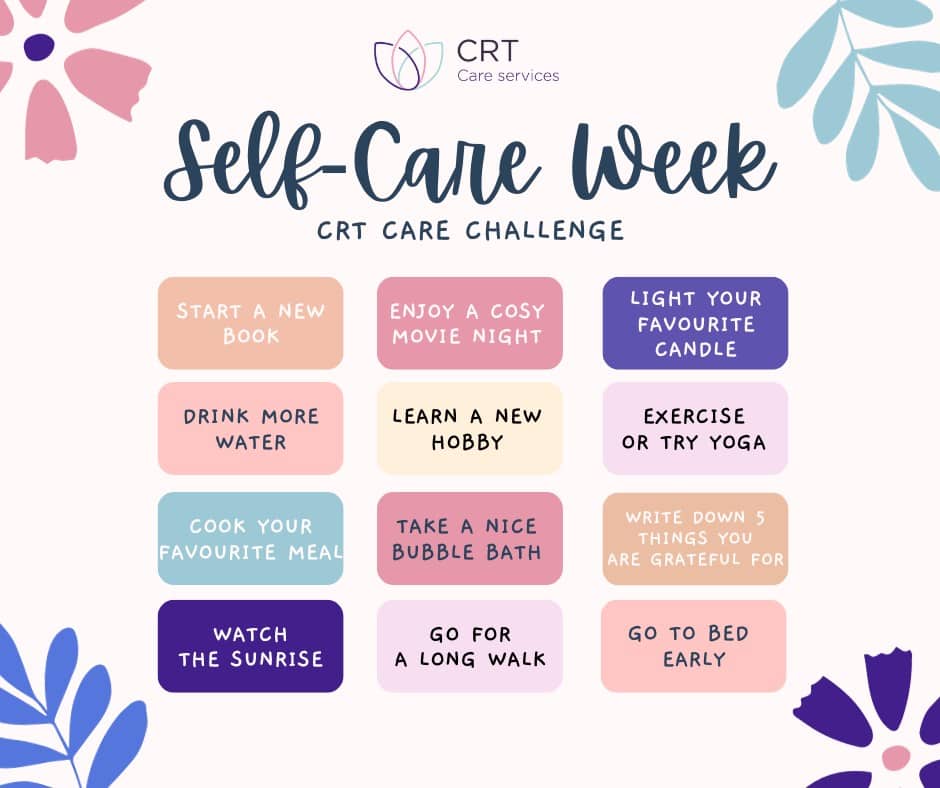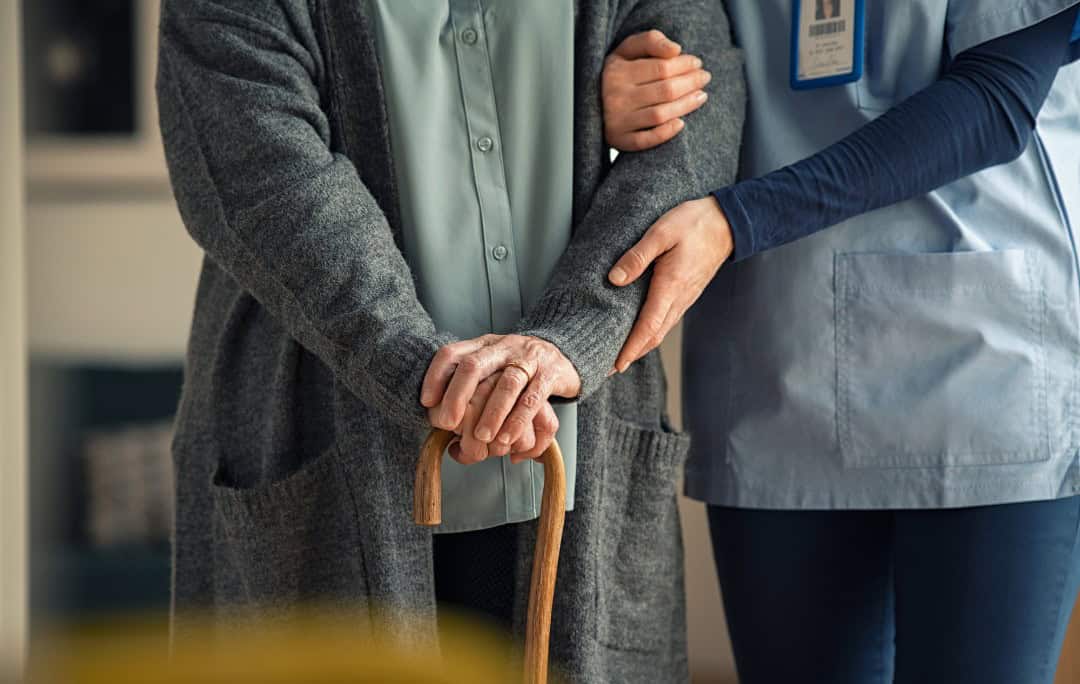It’s the annual, UK-wide awareness week run by the Self Care Forum, a charity aiming to further the reach of self-care in the population, making it everyone’s everyday habit and culture, to think and practice self-care. Self Care Week is a well-established public health initiative, its purpose is to embed support for self-care across communities, families, and generations.
We know messages are amplified when spoken by many. Self Care Week provides an excellent opportunity to inform, educate and remind people about the many benefits of self-care to short and long-term health, giving them confidence and understanding to look after their physical health and mental well-being.
What can we all do to improve our self care?
Here are some other self-care messages that are encouraged to adopt and promote during Self Care Week:
- Take vitamin D supplements, particularly important as daylight hours decrease
- Maintain good nutrition and regular exercise to support general well-being and help maximise people’s immunity.
- Adopt positive lifestyle choices
- Increase health literacy levels in communities and schools
- Support mental wellness, including maintaining social connections, outdoor exercise, work-life balance etc.
- Find out how to manage minor and long-term health conditions
- Understand the importance of vaccinations and screening.
The Self Care Forum site has several other fact sheets designed to help support these messages, including the POWER of Self Care.
Self Care Week also highlights better use of health services by signposting people to the services most relevant to their health needs – in particular, encouraging more of us to access our local pharmacies for health care treatments and advice.
How can self care help my Mental Health?
Self-care techniques and general lifestyle changes can help manage the symptoms of many mental health problems. They may also help prevent some problems from developing or getting worse. Here are some tips for looking after yourself that you might find helpful:
Stay aware of your mental health
- Tell people what helps. If certain treatments have helped in the past, tell your doctor. Let your friends and family know how they can support you, whether it’s listening to you when you’re having a bad day, helping you keep on top of your commitments, or being aware of your triggers (things that set off your difficult feelings or behaviours, or make them worse).
- Spot your early warning signs. If you can, try to be aware of how you’re feeling, and watch out for any signs you might be becoming unwell. These will be individual to you, but it can be useful to reflect on what these may be so you can get support as soon as possible.
- Keep a mood diary. Tracking your moods can help you to work out what makes you feel better or worse. You can then take steps to avoid, change or prepare for difficult situations. You can create your own mood diary or find one online – there are many freely available on the internet and as apps for your phone.
- Build your self-esteem. Taking steps to increase your self-esteem can help you to feel more confident and able to cope (see these pages on how to increase your self-esteem for more information).
Nourish your social life
Feeling connected to other people is important. It can help you to feel valued and confident about yourself, and can give you a different perspective on things. If you can, try to spend some time connecting with friends and family – even a text or phone call can make a difference.
If you don’t have supportive friends and family around you and are feeling isolated, there are other ways you can make connections. For example, you could try going to community events where you might have some interests or experiences in common with other people there, or joining a group like a local book club or sports team.
Try peer support
When you experience a mental health problem it can feel like no one understands. Peer support brings together people who’ve had similar experiences to support each other. This can offer many benefits, such as:
-
- feeling accepted for who you are
- increased self-confidence
- meeting new people and using your experiences to help others
- finding out new information and places for support
- challenging stigma and discrimination.
You can contact Mind’s Infoline for details of local support groups near you, or try online peer support like Mind’s community Side by Side (see our pages on peer support for more information).
Make time for therapeutic activities
There are various techniques and therapies you can safely practise on your own. For example:
-
- Relaxation – you may already know what helps you relax, like having a bath, listening to music or taking your dog for a walk. If you know that a certain activity helps you feel more relaxed, make sure you set aside time to do it. (See these pages on relaxation for more information.)
- Mindfulness – mindfulness is a therapeutic technique that involves being more aware of the present moment. This can mean both outside, in the world around you, and inside, in your feelings and thoughts. Practising mindfulness can help you become more aware of your own moods and reactions, but not everyone finds mindfulness helpful. (See these pages on mindfulness for more information, including guidance on whether mindfulness might be right for you.)
- Getting into nature – getting out into a green environment, such as a park or the countryside, is especially good for you. Even if you don’t have a garden or aren’t very mobile, caring for plants or animals indoors can still help you get some benefits from nature. (See these pages on ecotherapy for more information.)
These activities can be particularly valuable if you don’t want to try medication or talking treatments, or you’re having to wait a while for treatment on the NHS.
Look after your physical health
Taking steps to look after your physical health can help you manage your mental health too.
Get enough sleep
Rest when you can. This can help you have the energy to cope with difficult feelings and experiences.
Keep physically active
Regular exercise doesn’t have to be very strenuous or sporty to be effective – to start with you could try gentle exercise like going for a short walk, yoga or swimming. The important thing is to pick something you enjoy doing, so you’re more likely to stick with it. If you’re physically disabled, Disability Rights UK provides information about exercises you might be able to do. Alternatively, ask your doctor for advice.
Avoid drugs and alcohol
While you might want to use drugs or alcohol to cope with difficult feelings, in the long run they can make you feel a lot worse.
You can contact Turning Point for information and support to stop using drugs and alcohol.
Make time for personal care
When you’re experiencing a mental health problem, it’s easy for personal care to not feel like a priority.
But small everyday things, such as taking a shower and getting fully dressed, can make a big difference to how you feel.
Eat healthily
What you eat, and when you eat, can make a big difference to how well you feel.
Contact a specialist organisation
If you have a diagnosis, or would like support in a specific area, try contacting a specialist organisation for help. For example:
-
- Anxiety UK offers advice and support for people living with anxiety.
- B-eat provides information and support for people affected by eating disorders.
- Campaign Against Living Miserably (CALM) supports men’s mental health.
- FRANK provides confidential drugs advice and information.
- Hearing Voices Network runs an online forum and local groups across the country.
- Mind Out offers mental health advice and support for anyone who identifies as LGBTQ+.
- No Panic offers help and advice about anxiety disorders, including a helpline and recovery groups.
- StudentMinds supports students with their mental health.
- YoungMinds supports children and young people with their mental health.
If these work well for you then you may find you don’t need any formal treatment. However, it’s important to remember that there is unlikely to be an instant solution. Recovering from a mental health problem is likely to take time, energy and work.
These pages on improving and maintaining your mental well-being have more self-care suggestions and tips.
Information taken from:
https://socialcare.blog.gov.uk/2023/09/22/get-ready-for-self-care-week/








